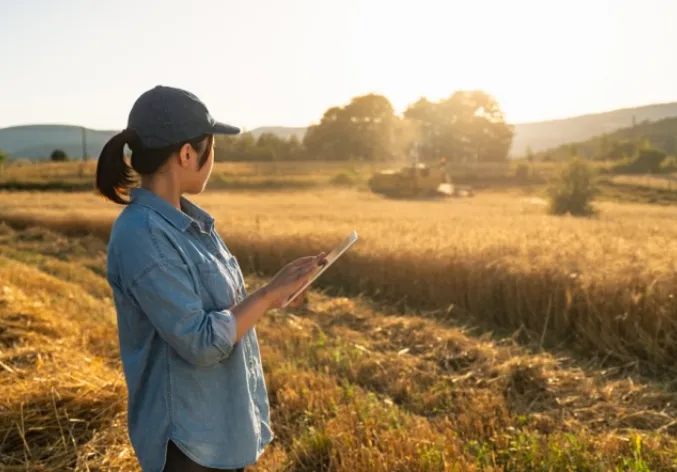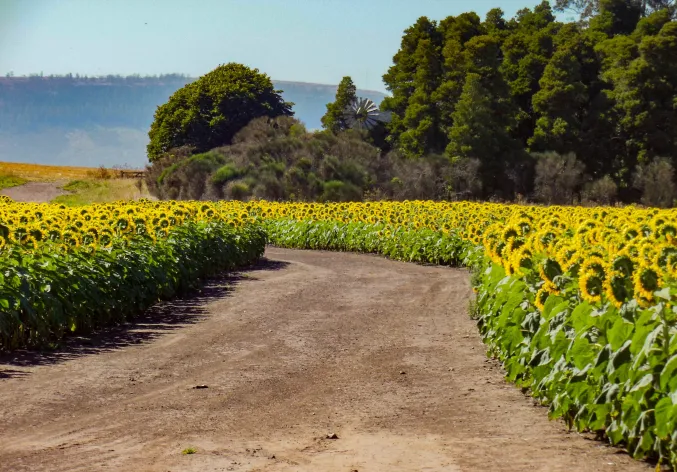Syngenta: accelerating innovation in a changing world
Basel, Switzerland
Syngenta announced today that it will accelerate its innovation to address the increasing challenges faced by farmers around the world and the changing views of society.
“Farmers today need to manage climate change, soil erosion and biodiversity loss, as well as changing consumer expectations and views on agricultural technology,” said Alexandra Brand, Chief Sustainability Officer of Syngenta. “There is a clear call for innovation and more action to address these challenges in ways where everybody wins – from growers to consumers and the environment.”
The announcement follows the completion of more than 150 listening sessions worldwide, engaging a broad cross section of views. The result was a much clearer understanding of what society and farmers expect and what sustainable agriculture means to different groups.
Syngenta’s new approach aims to further improve the way crops are grown and protected, and find solutions that address interconnected environmental, societal and economic challenges.
Work will focus on three areas:
Society and nature guided innovation. Society’s views and environmental needs will increasingly become central drivers for innovation alongside meeting farmers’ needs. New products will be developed in consideration of externally verified sustainability principles.
Strive for the lowest residues in crops and the environment. Syngenta stands by the safety of its highly-regulated products and the role they play in protecting food quality and safety. Nonetheless, Syngenta has listened and will work with partners to further reduce residues in crops without impacting farmer productivity, and continue to improve soil health and prevent soil erosion.
Invest where it matters to farmers and nature. Syngenta will collaborate – with farmers, academia and environmental groups – on researching and developing sustainable solutions. And it will report transparently on the progress and outcomes of these investments.
Mrs. Brand said: “There is an undeniable demand for a shift in our industry. This has been the clear message throughout the listening sessions. We will put our innovation more strongly in service of helping farms become resilient to changing climates and better able to adapt to consumer requirements including reducing carbon emissions and reversing soil erosion and biodiversity decline.”
Next steps include further consultation with stakeholders to develop clear targets and metrics against these focus areas, which will be announced later in the year. Work is also underway to build insights from the listening sessions into the next evolution of The Good Growth Plan in 2020. The Plan, which is in its sixth year, is well on track to deliver all commitments.
About Syngenta
Syngenta is one of the world’s leading agriculture companies. Our ambition is to help safely feed the world while taking care of the planet. We aim to improve the sustainability, quality and safety of agriculture with world class science and innovative crop solutions. Our technologies enable millions of farmers around the world to make better use of limited agricultural resources. With 28,000 people in more than 90 countries we are working to transform how crops are grown. Through partnerships, collaboration and The Good Growth Plan we are committed to improving farm productivity, rescuing land from degradation, enhancing biodiversity and revitalizing rural communities. To learn more visit www.syngenta.com and www.goodgrowthplan.com. Follow us on Twitter at www.twitter.com/Syngenta and www.twitter.com/SyngentaUS.
Cautionary Statement Regarding Forward-Looking Statements
This document contains forward-looking statements, which can be identified by terminology such as ‘expect’, ‘would’, ‘will’, ‘potential’, ‘plans’, ‘prospects’, ‘estimated’, ‘aiming’, ‘on track’ and similar expressions. Such statements may be subject to risks and uncertainties that could cause the actual results to differ materially from these statements. For Syngenta, such risks and uncertainties include risks relating to legal proceedings, regulatory approvals, new product development, increasing competition, customer credit risk, general economic and market conditions, compliance and remediation, intellectual property rights, implementation of organizational changes, impairment of intangible assets, consumer perceptions of genetically modified crops and organisms or crop protection chemicals, climatic variations, fluctuations in exchange rates and/or commodity prices, single source supply arrangements, political uncertainty, natural disasters, and breaches of data security or other disruptions of information technology. Syngenta assumes no obligation to update forward-looking statements to reflect actual results, changed assumptions or other factors.


